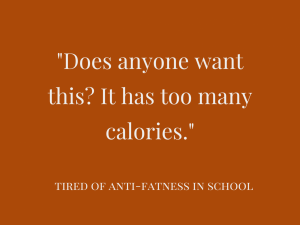Body Positivity V.S. Obesity
October 22, 2021
Body positivity is a new movement that aims to remove the shaming of people with excess body fat, as the media and the social stigma surrounding these individuals depict them in a very negative manner. This is a very beneficial and necessary cause to support. It is possible to have excess body fat and be healthy because the relationship between body fat percentage, weight, and health is a complex one. The roots of the body positivity movement were dug when Bill Fabrey, a New York engineer, founded the NAAFA (National Association to Advance Fat Acceptance). NAAFA is the world’s longest-running fat acceptance organization. The movement in its current configuration began to form in 2012.
However, obesity is beginning to be a huge problem, especially in the United States. A Harvard study in 2020 concluded that 1 out of every 3 adult Americans is obese and that in 2030 it is projected that nearly half the United States population will be obese. With this movement starting, we must prioritize health, regardless of how our feelings come into play. With new food products, it is becoming seemingly easier to maintain a healthy weight and lifestyle while not restricting the foods you eat. Obesity can increase the risk of type 2 diabetes, stroke, and other cardiovascular diseases. It has been linked to malignancies of the esophagus, pancreas, colon and rectum, breast, endometrial, and kidney, as well as a possible link between obesity and gallbladder cancer, according to the World Cancer Research Fund and the American Institute for Cancer Research.
It’s in situations like this one where it is important to find the balance between both health and self-care. It is possible for people to have excess body fat and be unhealthy, but obesity is objectively unhealthy. Society should not shame those who are obese, but glorifying obesity isn’t a practice that we should conform to due to people’s sensitivity in that area. People often hide their fatphobia under the cover of having health concerns, but if the individual in question is not obese, there should not be any questioning about the individual’s health. Obesity is the problem, not excess body fat.







